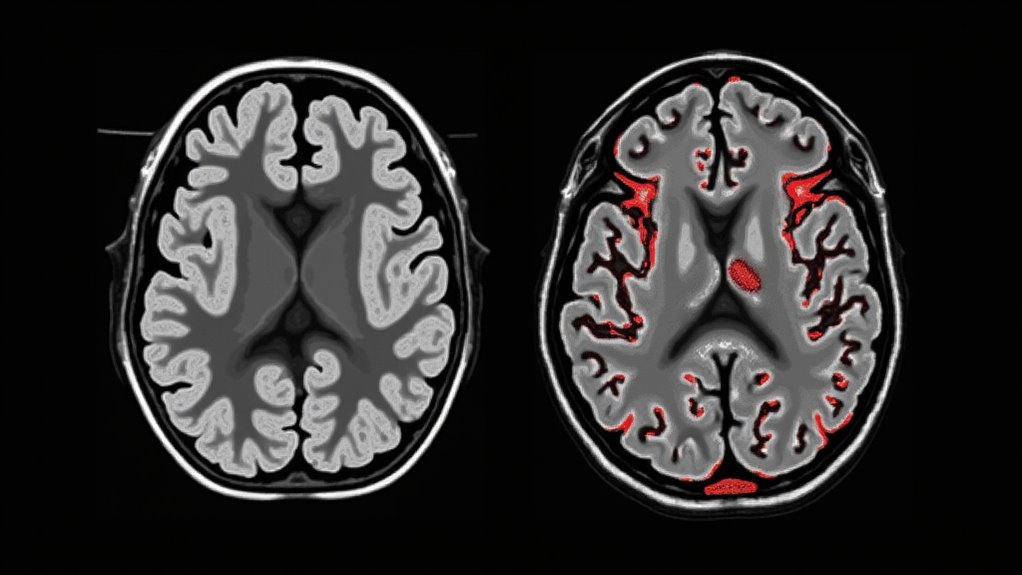While most people associate diabetes with blood sugar problems, its effects reach far beyond the pancreas—straight into the brain. That sugar-coated menace is literally shrinking your gray matter. Not kidding. Research shows type 2 diabetes accelerates brain aging by a whopping 26% compared to normal aging. Let that sink in.
Diabetes isn’t just a pancreatic problem—it’s a brain thief, aging your gray matter 26% faster than normal.
Your executive function and processing speed take major hits. Remember when you could multitask without forgetting half your to-do list? Diabetes is coming for those abilities. High glucose levels attack the hippocampus—your brain’s memory headquarters—leading to learning and recall problems that mirror early Alzheimer’s symptoms. Those extra pounds and high blood pressure that often tag along with diabetes? They’re not helping either. High blood pressure affects nearly 74% of diabetic adults, compounding the risks to brain health.
The statistics are downright terrifying. Diabetics face a 50-100% higher risk of dementia. That’s double the chance of your brain betraying you. And it gets worse the longer you have diabetes. The microvascular complications that damage your eyes and nerves are doing similar damage upstairs. Every uncontrolled blood sugar spike is another tiny assault on your neural circuitry.
The Alzheimer’s connection isn’t just correlation—it’s biology. Both conditions involve similar brain proteins and pathological changes. Scientists have found those signature brain tangles of Alzheimer’s show up more frequently in diabetic brains. Some research suggests a staggering 70% of type 2 diabetics may eventually develop Alzheimer’s. Frightening stuff.
Insulin resistance doesn’t just mean your body ignores insulin. Your brain needs insulin too, and when that system breaks down, cognitive decline follows. Type 2 diabetics experience a significant decrease in insulin production in the brain, directly impairing cognitive function. The damage concentrates in critical areas like the ventral striatum, cerebellum, and putamen—fancy names for parts of your brain you definitely need working properly.
The good news? Managing diabetes through lifestyle changes might help protect your brain. The bad news? Treatments like metformin don’t seem to directly improve brain health. Your best bet is catching and controlling diabetes early—before your brain starts resembling a science experiment gone wrong. Excess insulin from diabetes disrupts critical brain chemistry, creating a perfect storm for cognitive decline.








